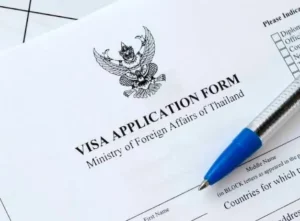Transferring property ownership in Thailand is a significant process that requires careful attention to legal requirements, documentation, and procedural steps. Whether you are buying, selling, or inheriting property, understanding the property title transfer Thailand process is essential to ensure a seamless and lawful transaction. This guide provides a detailed overview of the key aspects of property title transfers in Thailand, including the legal framework, procedural steps, associated costs, and practical tips.
Legal Framework Governing Property Title Transfers
Thailand’s property laws are primarily governed by the Civil and Commercial Code and various regulations issued by the Land Department. Foreigners and Thais are subject to different rules regarding property ownership:
- Foreign Ownership Restrictions: Foreign individuals can own condominiums outright but are generally prohibited from owning land, with exceptions for leasehold agreements or ownership through companies.
- Thai Ownership Rights: Thai citizens and entities have the unrestricted right to own property and land.
Transactions involving the transfer of property titles must comply with these legal requirements to be recognized as valid.
Key Types of Property in Thailand
- Land (Chanote): The highest form of land ownership title, which provides clear ownership rights and boundaries.
- Condominium Units: Foreigners may own up to 49% of the total sellable area in a condominium project.
- Leasehold Properties: Long-term leases (up to 30 years) are common for foreign buyers seeking to invest in Thai land.
- Buildings and Houses: Structures can be owned separately from the land on which they are built.
Steps for Property Title Transfer
1. Due Diligence
Before proceeding with a title transfer, conduct due diligence to ensure the property is free from legal disputes, encumbrances, or restrictions. Key actions include:
- Verifying ownership details.
- Checking for liens, mortgages, or other claims.
- Confirming zoning and land use regulations.
2. Drafting and Signing the Sales Agreement
Both parties must agree on the terms of the sale, which should be documented in a written contract. This agreement typically includes:
- Sale price.
- Payment terms.
- Property description.
- Conditions for title transfer.
3. Preparing Required Documents
Essential documents for the transfer include:
- Property title deed (Chanote or equivalent).
- Identification documents of buyer and seller.
- House registration book (Tabien Baan).
- Tax clearance certificates.
- Power of attorney, if applicable.
For foreigners, additional documents such as proof of funds from abroad and permission from the Land Department may be required.
4. Visiting the Land Office
The title transfer must be conducted at the Land Office with jurisdiction over the property. Both parties or their representatives must be present. Steps include:
- Submitting documents.
- Verifying details with Land Office officials.
- Paying applicable fees and taxes.
5. Payment of Fees and Taxes
Transfer fees, taxes, and other costs must be settled before the title transfer is completed.
6. Title Transfer Completion
Once all formalities are completed, the Land Office updates the title deed to reflect the new owner’s name. The buyer receives the updated title deed as proof of ownership.
Costs Involved in Property Title Transfer
- Transfer Fee:
- Typically 2% of the property’s official appraised value.
- Withholding Tax:
- Applied to sellers, calculated based on the assessed value and duration of ownership.
- Specific Business Tax:
- 3.3% of the property’s appraised value if the seller has owned the property for less than five years.
- Stamp Duty:
- 0.5% of the property’s appraised value, applicable if the specific business tax does not apply.
- Legal and Administrative Fees:
- Costs for legal assistance and documentation vary depending on the complexity of the transaction.
Special Considerations for Foreign Buyers
1. Condominium Ownership:
- Foreign buyers must provide proof that funds for the purchase were transferred from abroad in foreign currency.
- A Foreign Exchange Transaction Form (FETF) is required for registration.
2. Leasehold Properties:
- Leases must be registered at the Land Office to be enforceable.
- The lease term is typically limited to 30 years, renewable at the discretion of the parties.
3. Land Ownership through Thai Companies:
- Foreigners may establish a Thai company to own land, but the company must comply with Thai regulations regarding foreign shareholding limits.
Common Challenges and How to Overcome Them
1. Incomplete Documentation:
- Missing or incorrect documents can delay the transfer process.
- Solution: Double-check document requirements with the Land Office or a legal professional.
2. Disputes Over Ownership:
- Unresolved disputes may affect the validity of the transfer.
- Solution: Conduct thorough due diligence to verify ownership and title deed authenticity.
3. Unclear Property Boundaries:
- Ambiguities in land boundaries can lead to disputes with neighbors.
- Solution: Use a licensed surveyor to confirm boundaries before the transfer.
4. Language Barriers:
- Official documents are in Thai, which can be challenging for foreign buyers.
- Solution: Engage a bilingual legal expert to assist with translations and explanations.
Tips for a Smooth Property Title Transfer
- Hire Professional Assistance:
- Engage a reputable lawyer or property consultant to guide you through the process.
- Conduct Thorough Research:
- Verify the property’s legal status and market value.
- Understand Tax Implications:
- Be aware of all taxes and fees to avoid unexpected expenses.
- Maintain Open Communication:
- Clearly communicate with the other party to address any concerns promptly.
- Plan for Contingencies:
- Anticipate potential delays and have a contingency plan in place.
Role of Legal Professionals
Legal professionals play a crucial role in ensuring compliance with Thai property laws, minimizing risks, and expediting the title transfer process. Their services may include:
- Conducting due diligence.
- Drafting and reviewing contracts.
- Representing clients at the Land Office.
- Advising on tax and regulatory matters.
Conclusion
Property title transfer in Thailand involves multiple legal and procedural steps that must be carefully managed to ensure a successful transaction. By understanding the requirements, preparing necessary documents, and seeking professional assistance, buyers and sellers can navigate the process with confidence. Whether you are a Thai citizen or a foreigner, adhering to these guidelines will help secure your investment and avoid potential legal complications.










